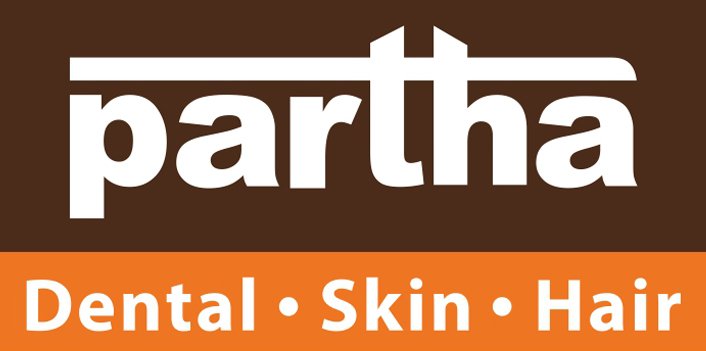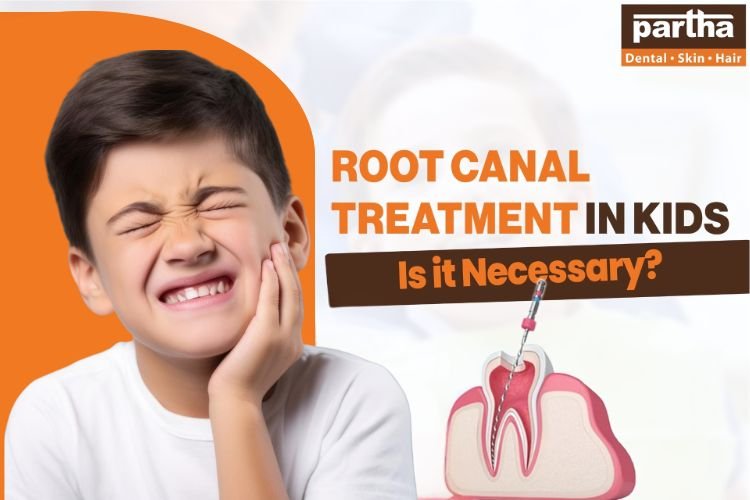As parents we tend to think of root canal treatments as something that only adults have. But kids have the potential to develop serious tooth decay or trauma that affects the pulp of a tooth which is an important tissue in the tooth that contains nerves and lymphatics (the elements that create discomfort).
In relation to oral health development, when such situations arise, carrying out a root canal will at least keep a tooth and help push your child to ideal oral development.
Common reasons for RCT for kids may include:
- Deep cavities that extend pulp of a tooth
- Dental trauma (i.e. fall or accident)
- Chronic toothache or sensitivity
- Dental abscess or swelling in the gums.
1. What Is Root Canal Treatment in Kids?
Root canal treatment (RCT) for kids is when the dentist removes infected pulp tissue from a baby or permanent tooth, cleans the vacant space, and then seals the tooth to prevent further infections from developing. The treatment is often performed on milk teeth so that they can survive until they fall out naturally, keeping space for the permanent teeth and preventing problems such as misalignment down the road.
There are a number of different types of pulp therapy for kids depending on how badly the tooth is damaged:
- Pulpotomy – Removal of the part of the pulp that is infected, usually in baby teeth.
- Pulpectomy – Removal of pulp tissue from the crown and roots, and then fill it.
- Root Canal – A very similar procedure to a pulpectomy, but usually done to a permanent tooth, or to a badly infected primary tooth.
2. Is Root Canal Safe for Kids?
Yes. Root canal treatment for kids is safe and effective when conducted by a qualified pediatric dentist. In fact, root canal therapy is one of the most recommended ways to maintain a child’s natural tooth (and will help to avoid premature tooth loss).
3. Benefits of RCT in Kids:
- Pain relief from an infection or abscess
- Prevention of the spread of infection to another tooth or jaw
- Maintains the integrity of the jawbone
- Provides proper spacing for the permanent teeth
- Supports the development of normal speech
The goal for youngsters is to maintain oral function and permit healthy tooth growth, as opposed to adults, who prioritise appearance.
4. Signs Your Child May Need an RCT
Here are some signs that could warrant RCT in children:
- Continuous pain in the tooth, especially at night
- Sensitivity to hot or cold food
- Swelling or red tissues around the tooth
- Darkening or discoloration of the tooth
- Pus drainage or abscess formation
- Mobility of the tooth or pain when biting
If your child experiences any symptoms above, you will want to consult their pediatric dentist.
5. The RCT Process for Kids – Step by Step
Here is what usually happens during the root canal treatment of a child:
1. X-ray and examination
To ascertain the degree of the illness, the dentist will do a thorough examination of your child’s teeth and take an X-ray.
2. Anaesthesia
To make sure your kid is comfortable, the region will be numbed with local anaesthetic. Depending on your child’s degree of anxiety, conscious sedation could be necessary in some situations.
3. Removal of Pulp
The tooth’s damaged or infected pulp is extracted.
4. Disinfecting and cleaning
To get rid of germs, the inside of the tooth is cleansed and disinfected.
5. Filling
The void left is packed with a biocompatible substance. In the case of baby teeth, dissolvable substances are utilized.
6. Crown
Typically, a stainless steel crown is placed on the treated tooth to provide protection and restoration of function.
6. Root Canal Cost in Kids
The root canal cost in kids varies based on certain aspects such as –
- Is it a baby tooth/work, or a permanent tooth?
- What is the amount of infection?
- Is a crown required?
- Location of clinic and the certified expertise of dentist?
In India, - Pulpotomy/pulpectomy for milk teeth – ₹2,000 and ₹4,000.
- Root canal for children’s permanent teeth: ₹3,000 to ₹6,000
- Stainless steel crown (optional but recommended): ₹1,500 – ₹3,000
Yes. Partha Dental offers accessible cost-effective pediatric dental care in a child-friendly environment with qualified pediatric dentist.
What If My Child Does Not Get An RCT?
If RCT in children is delayed or avoided, it can cause –
- More severe infection
- Abscess
- Pain whilst eating and/or speaking
- Premature loss of baby teeth
- Misalignment of permanent teeth
- Chronic oral health problems
It is important to understand that baby teeth contribute to the growth and oral development of children just like adult teeth.
7. Preparing Your Child for a Root Canal
As a parent, you must maintain a calm and comforting manner.
- Provide a positive description of the process, try not to use scary terms
- Kids can tell if you are nervous, so stay calm yourselves.
- Trust your child’s dentist: Their specialized training as paediatric professionals offers a patient, caring approach, and allows them the flexibility to work effectively with children.
- Follow any suggested post-treatment guidelines: Following this is important for the success of the treatment, so be very considerate of this..
Although receiving a root canal for a youngster may seem frightening, it is not only safe but frequently required to maintain oral health, reduce discomfort, and stop more issues. You’ll have a rather pleasant, stress-free, and very successful experience.
Call us now – 04041420000 to make your appointment. We assure you that at Partha Dental we work hard to provide caring, affordable, and expert pediatric dentistry using the best materials and efficiencies. Our specialists are trained to do everything they can to ensure your child’s comfort while providing the best standard of care.
8. FAQs
Q1. How old is a child when they can receive a root canal?
All children are different and there isn’t an age limit. Younger children aged 2-3 and even older, will need pulp therapy on their milk teeth, not necessarily a full root canal. Children with permanent teeth that need a root canal can receive a root canal, no matter their age.
Q2. Will my child feel any pain when they get their RCT?
No, root canal treatment for kids (as it is the case for all patients) is done under local anaesthesia so your child will not feel any pain. It is common for your child to feel mild discomfort after the treatment which can be addressed with their prescribed medications.
Q3. Is a root canal in kids different from adults?
Yes. With kids, the focus is often on keeping the baby tooth until it sheds naturally, and the materials used are more appropriate for developing teeth. In contrast, root canal treatment in adults is more permanent and has a restorative focus.
Q4. What is the success of RCT in children?
RCT in kids is very successful when it has been done correctly. Monitoring the tooth and providing regular checkups is going to help in preserving the tooth throughout its course until it is naturally exchanged.
Q5. How long does a child’s root canal take?
A pulpotomy can be completed in 30 – 45 minutes, while a complete pulpectomy or root canal can take about 60 – 90 minutes or two visits, depending on the infection. Read more
Disclaimer:
The prices mentioned in this blog are indicative and may vary based on the severity of the condition, technology used, and materials suggested by the Dentist. They are accurate as of the date of publishing and subject to change as per clinic policy. Third-party or AI-generated estimates may not reflect actual clinic pricing. For accurate costs, please visit your nearest Partha Dental clinic.




